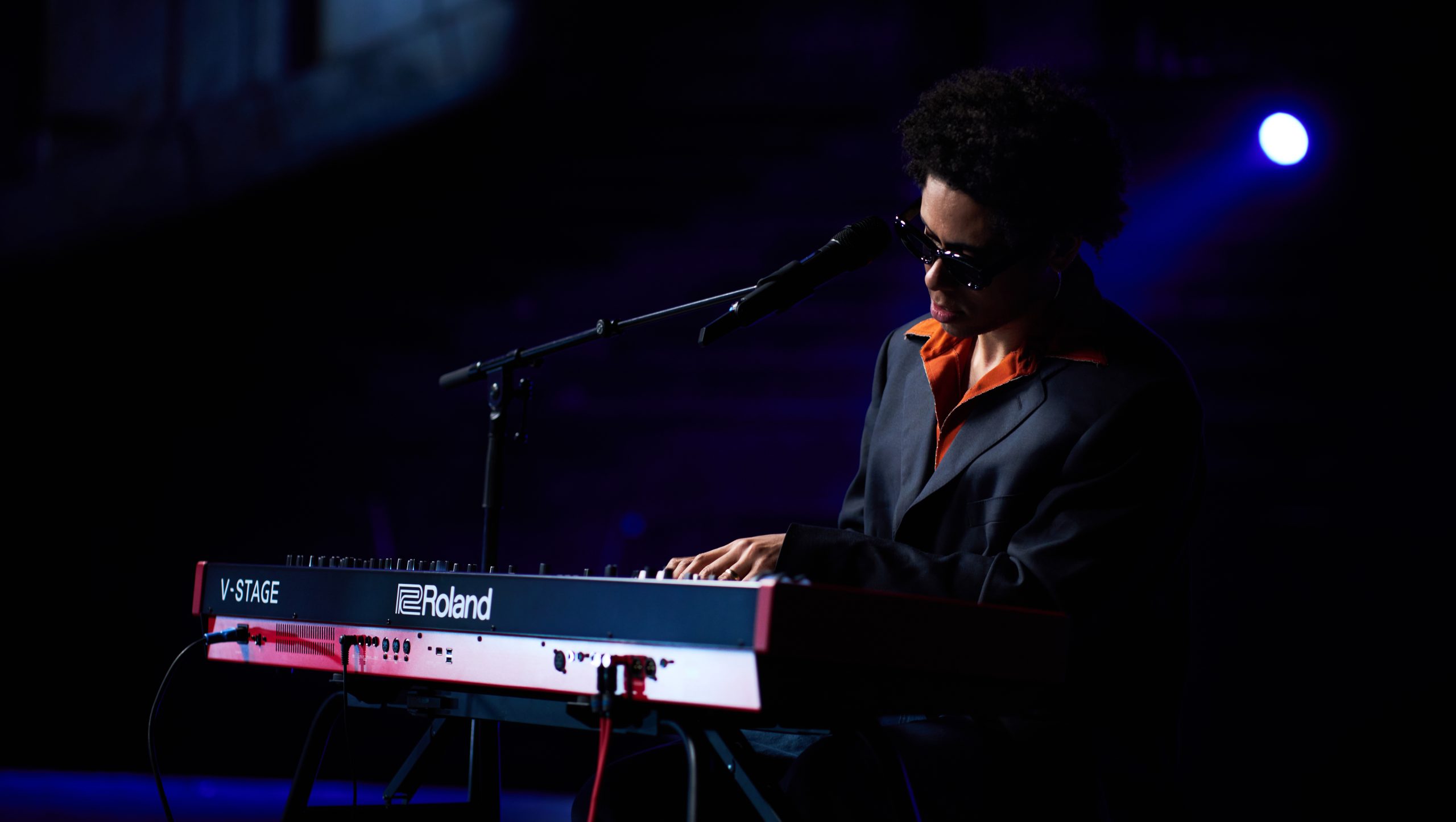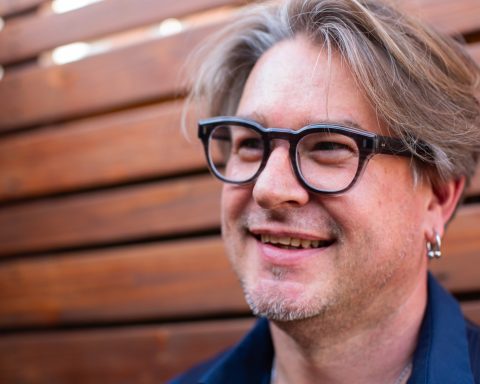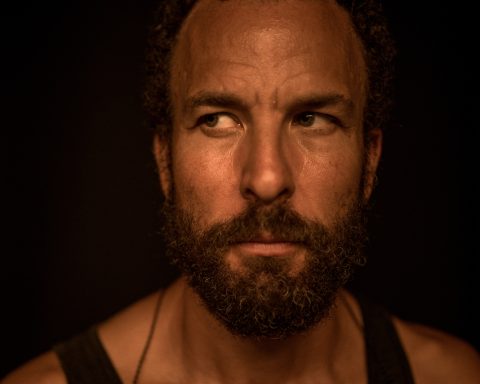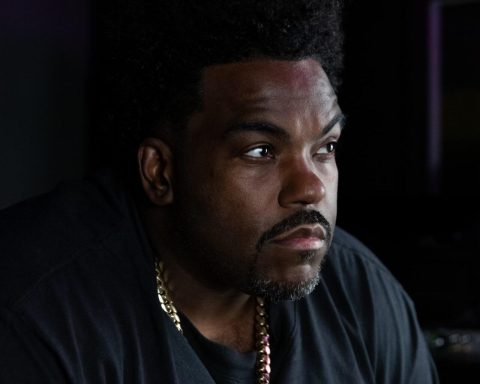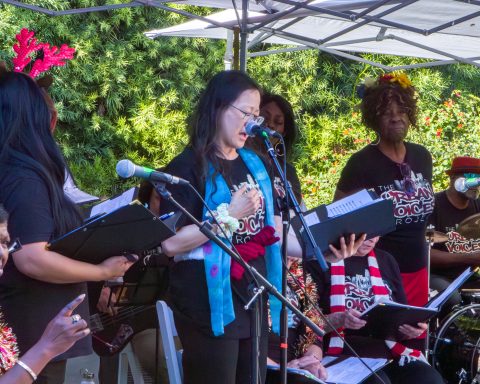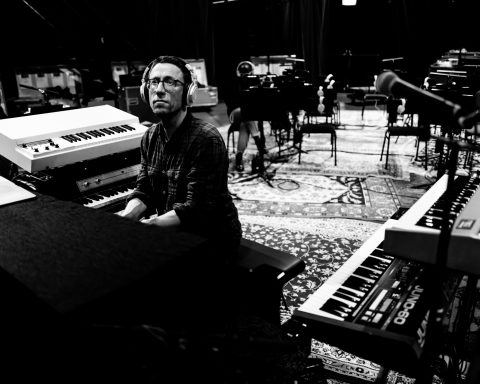Pianist, singer-songwriter, and producer Reuben James effortlessly blends jazz, R&B, pop, and soul into tunes that transport listeners to a seat in a darkened jazz club. As a classically trained jazz pianist, James leans on his improvisation skills to deftly pivot between genres, making him a coveted collaborator as well as soloist.
James has worked with a diverse array of artists, including Sam Smith, Joni Mitchell, John Legend, Herbie Hancock, Stormzy, Little Mix, and Disclosure. The Birmingham-based virtuoso discusses his jazz roots, touring with Sam Smith, scoring for the screen, and the key to a successful music career.
Audio mixed by Ben Jones.
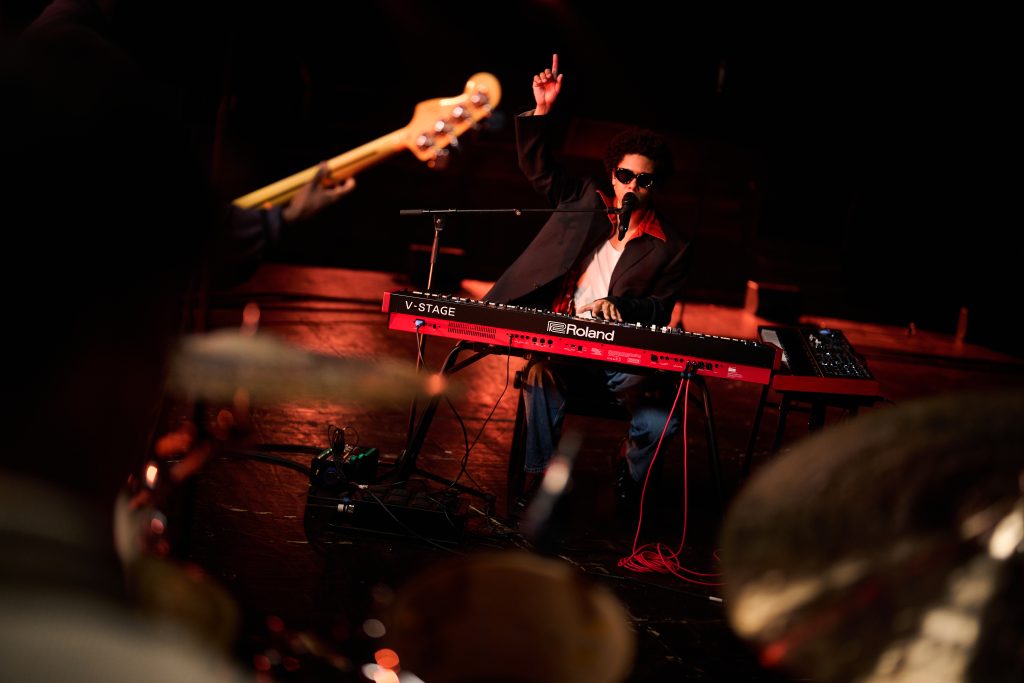
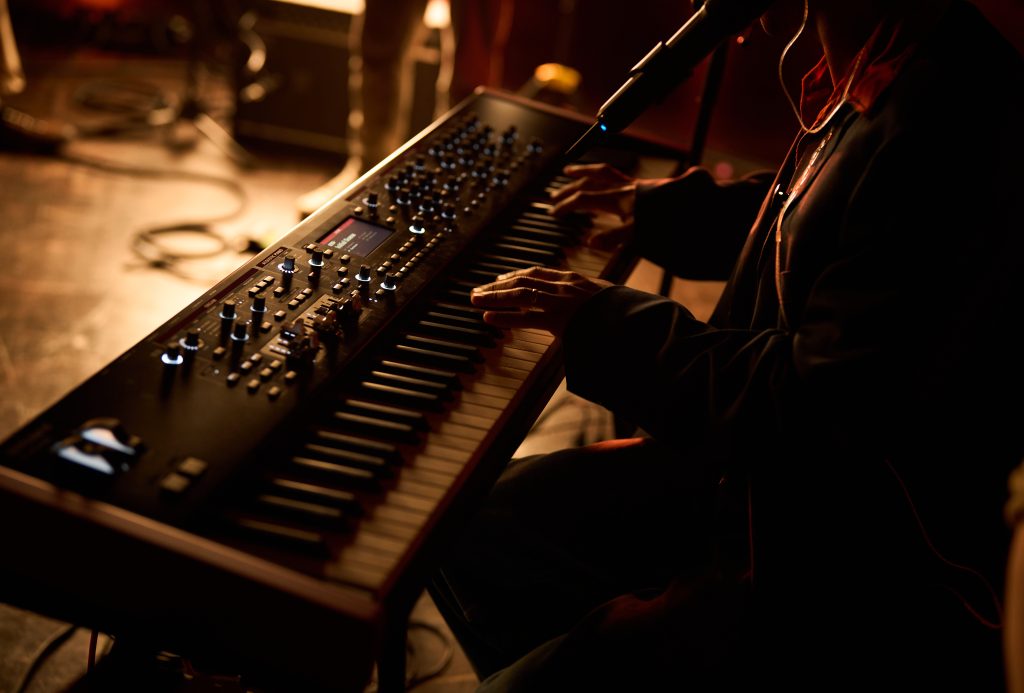
Learning the Standards
Reuben James’s love of music was nurtured from a young age with a piano never far from reach. “I started playing the piano at around three or four years old,” he recalls. “There was always a piano in the conservatory in the house. It was my favorite toy, and I just played for hours and hours and drove the neighbors crazy,” he remembers fondly.
Growing up in Birmingham fed his passion for live music, as he absorbed the city’s vibrant music scene, from local jazz bands to Pharrell and John Legend tour stops. “I remember John Legend performing ‘Ordinary People,’ and you could hear a pin drop in the audience. And I thought, ‘The way that he’s captivating this audience right now, that’s something that I would like to do.’”
As a teen, James fell in love with performing while opening for B.B. King with The Funk Army in Spain. “I remember seeing thousands and thousands of people, and I was really nervous, but then I kind of just rose to the occasion,” he smiles. “That was the moment where I was like, well, I can’t go and get a day job now—that adrenaline rush and feeling of so many eyes watching you and just performing and doing what you love. I was, like, ‘This is gonna be it forever.’”
"We decided it was a good idea to really get the life experience, travel the world, and learn on the job."
A Leap of Faith
James was accepted into the prestigious Trinity College of Music in London a couple of years later. His studies were augmented with nightly performance opportunities within the city, allowing him to cut his teeth in jazz institutions like Ronnie Scott’s. Eventually, he met a then-unknown Sam Smith. “We wrote and produced together and ended up touring together. I got about two and a half years’ worth of dates in the diary,” he remembers.
After discussions with his family about his future, he decided to take a leap, leaving school to tour with Sam Smith full-time. “We decided it was a good idea to really get the life experience, travel the world, and learn on the job,” James explains. “That’s every musician’s dream—to be able to gig and learn what it’s like professionally rather than just in a classroom.”
"A beautiful part about being a keyboard player and songwriter-producer is getting to work with some of my favorite artists."
Believe
The risk paid off. In addition to his own successful solo career and label, James has gone on to collaborate with powerhouses like Joni Mitchell, Brandi Carlile, Stormzy, and his childhood inspiration, John Legend. He credits the diversity of his collaborations to his instrument. “A beautiful part about being a keyboard player and songwriter-producer is getting to work with some of my favorite artists,” he states.
His passion for collaboration landed him a gig scoring for the hit show Ted Lasso with his pal Marcus Mumford. “It was incredible going into the studio with him and Tom Howe. The show had dialogue but no music, so we had to build the emotion. And it was all centered around the piano,” James explains. “I’m playing on the theme song, too.”
James credits his musical versatility to his jazz foundation. “Being a jazz musician, I can almost mold myself into these different situations. And coming from the session world, you have to be able to play every different genre.”
In the Moment
His V-STAGE keyboard aids his ability to pivot styles and sounds. “As an improviser in a live scenario, I like to be able to stay in the moment and change things very quickly,” he emphasizes. “If I’m soloing, it’ll be nice to throw in effects, whether delays or reverbs, or manipulating the sound as you go.”
With four different sound engines under his fingertips, James finds no shortage of inspiration, whether on stage or in the studio. “You’ve got such a variety of sounds within the synth bank, the organ engine, the EP engine, and the piano engine. You’ve got all the grands, uprights, and the electric piano section. I love the organ too,” he says. “Having a keyboard that can do all of these things in the moment and be able to tweak the sounds quickly is a big plus.”
Having all these sounds in a single instrument is particularly useful on the road, requiring less gear and maintenance. “A big plus with the V-STAGE is in the synthesizer engine. You’ve got emulations of a lot of the classic synthesizers, like the JUPITER-8 and JUNO-106. Those analogs are super hard to come across now. They’re so expensive,” he says. “Rather than having to get these super niche, rare keyboards that are hard to maintain, you’ve got them all at your fingertips.”
Roland Cloud integration has bridged the gap between his computer and instrumental keyboards in the studio. “When I’m producing on the laptop, I use a lot of sounds from Roland Cloud,” James says. “And it’s cool that I can get all those sounds I use on records in a production capacity and have them in the V-STAGE,” he explains.
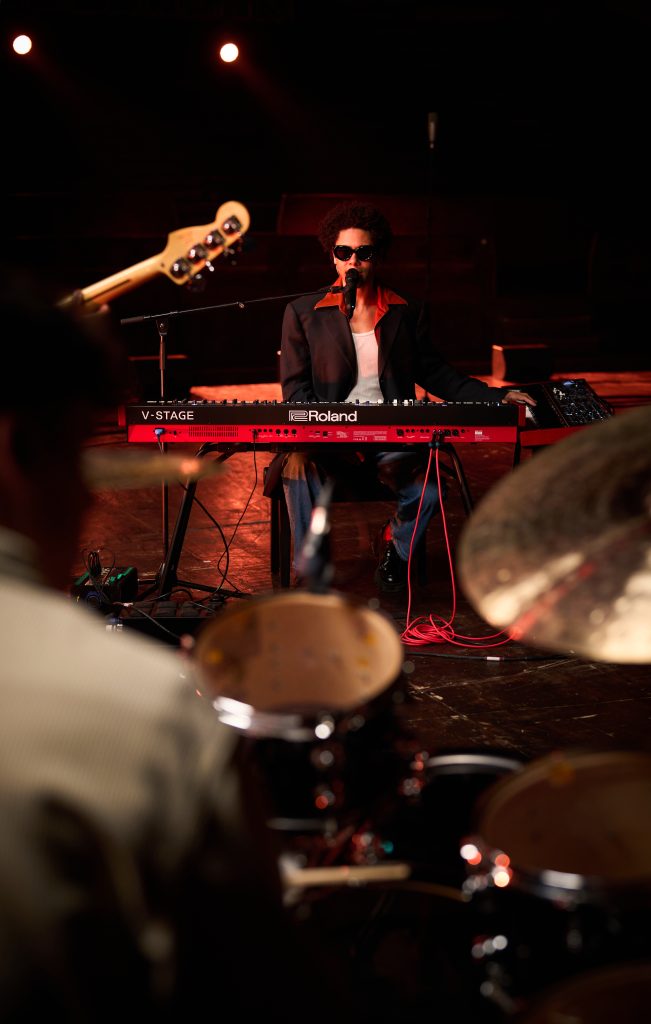
"Music has got to be your first love. It’s not easy. But you have to remember why you started, because it’s the best job in
the world."
The Power of Expression
A compelling piano performance goes beyond hitting the right notes; it becomes a powerful medium for personal expression. “The keyboard is a way of expressing my emotions,” James agrees. “All of the stories—growing up, falling in love—everything you go through as a child and as a man and as an adult, the keyboard is a vehicle for me to express that in a certain way. It’s always been my way of letting out all my emotions. It’s the most beautiful thing in the world.”
What’s the key to maintaining that passion throughout the inevitable career ups and downs? “Music has got to be your first love,” James advises. “Every artist has moments of struggle. It’s not easy. But you have to remember why you started, because it’s the best job in the world. Music, piano, harmony, creating—it’s my everything.”
